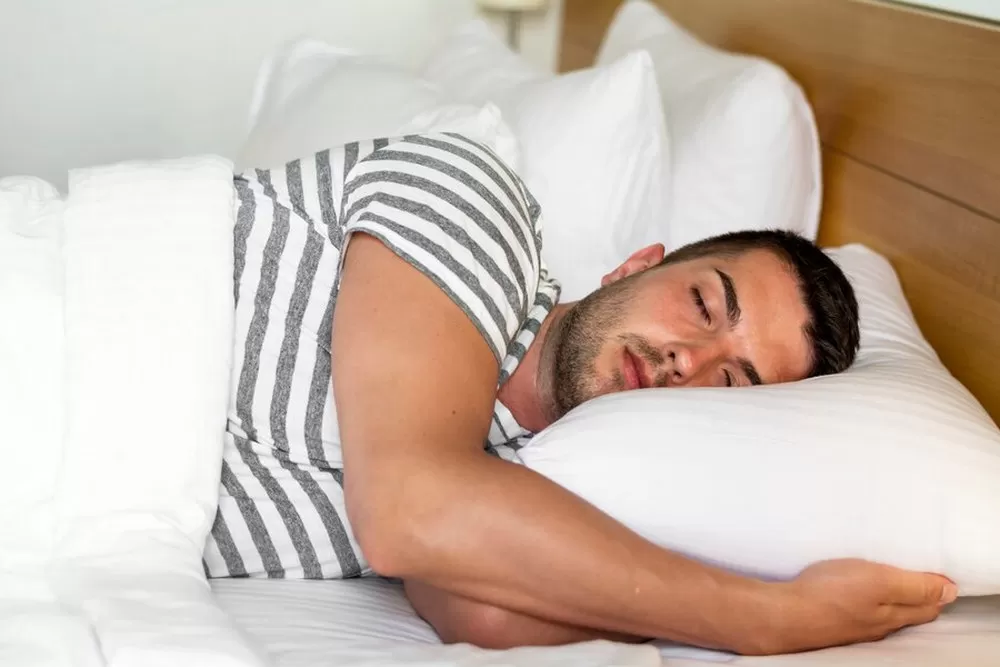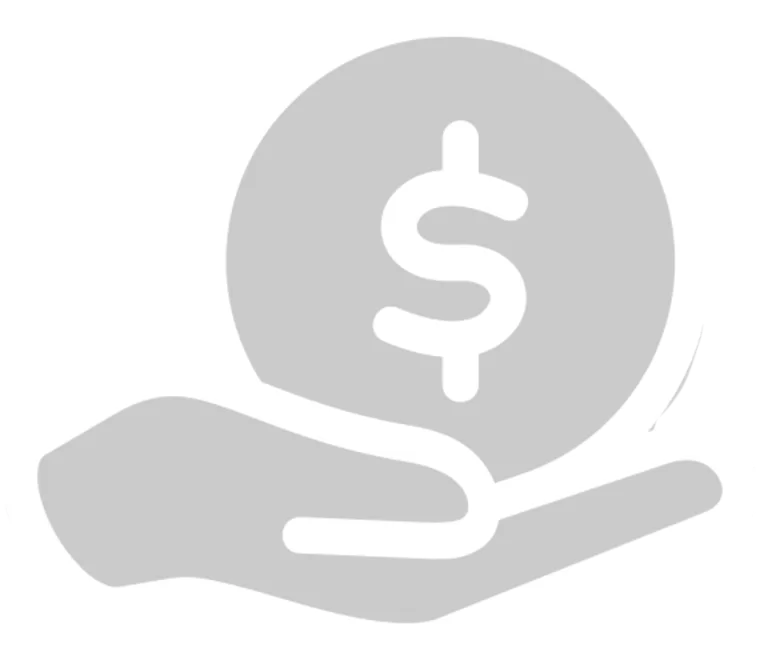For most of us, losing our hair can be a huge blow to our self-esteem, so we try anything to avoid it. Some methods don’t work, but there are others that seem to help. Is getting enough sleep one of them? Find out below.
Tabla de Contenidos
Not all hair loss is the same
First, the word “lose” is a bit misleading: We lose hair every day as part of the natural follicular cycle that controls hair growth, a normal process that the American Academy of Dermatologists calls “shedding.”
It is when the hair does not grow back that there is a problem, and that is an important fact to take into account when looking for a solution.
Androgenic alopecia, known as “male pattern baldness,” is the genetic predisposition that causes hair follicles to stop producing hair. It’s not a result of our lifestyle habits, so how we sleep or eat doesn’t really make much of a difference.
Telogen effluvium is a condition in which the hair growth cycle is interrupted. It may be due to an illness, a nutritional deficiency, stress or hormonal changes that occur after childbirth, for example. In most of these cases, hair can grow back, especially with the boost of good sleeping habits.
What role does sleep play?
Regular, uninterrupted sleep is essential for the health of the body, and the better the rest in general, the healthier the hair will be.
Sleep is not only the body’s way of saving energy and regenerating, but it also plays an important role in maintaining the chemical balance necessary for good health. One of those chemicals is melatonin: an important hormone that contributes to restful sleep and is believed to be involved in hair growth and can stop hair loss.
If we don’t get enough sleep, our melatonin levels decrease and our circadian rhythm (natural sleep cycle) becomes desynchronized. This means that normal cell growth suffers, including hair follicles.
Impact of insomnia on hair health
Rest is key to overall health, and hair health is no exception. Lack of rest is one of the main triggers of stress, which is not only a mental health condition, but a factor related to other conditions that can accelerate hair loss, such as:
- Hormonal imbalances. Poor sleep quality and stress are related to the alteration of hormones such as cortisol, melatonin and thyroid hormones: T3 and T4, which play an important role in dermatological and hair health.
- Oxidative stress. This condition is related to the excessive production of free radicals that damage the cells of the hair follicle, which can affect the growth of new hair or accelerate hair loss.
- Decrease in cell regeneration. While we sleep, our body carries out cell renewal processes; Therefore, lack of sleep prevents this regeneration, making hair more prone to conditions that thin it and contribute to hair loss.
- Circulatory problems. Lack of sleep also reduces blood flow, which prevents hair and follicles from receiving the nutrients and oxygen needed for growth.
Relationship between lack of sleep and hair loss
When we don’t sleep well, our body must deal with high levels of stress and fatigue. These conditions impact hair health and trigger or worsen hair diseases such as:
Telogen effluvium
Although telogen effluvium is not a disease, but rather a stage of hair growth, when our body deals with very high levels of stress the loss is usually more marked.
Telogen effluvium due to stress is one of the most common causes of hair loss. It is considered a type of temporary alopecia, which affects women more and is usually more alarming in very long and dark hair as the loss is more evident.
This fall is marked, diffuse, usually accompanied by loss of volume and is mainly noticeable when putting a ponytail in as the scalp can be glimpsed, or the forehead appears increasingly broader.
In most cases, telogen effluvium is temporary and does not lead to baldness, unless it coincides with androgenic alopecia. When the cause of stress ceases, hair loss usually resolves on its own and the mane grows back first with short, fine hair until it regains its usual thickness.
Alopecia areata
This type of alopecia is of autoimmune origin, so lack of sleep is not the main cause. However, stress can cause inflammatory conditions, which stimulate the immune response and the attack of benign cells that the immune system mistakenly considers malignant.
As a consequence, the immune system attacks the hair cells: the hair follicles, weakening them and causing baldness.
The role of melatonin in preventing hair loss
Melatonin is the hormone recognized for regulating the circadian cycle, in simple words: the time we spend awake and the time we sleep. Therefore, it also influences hair health.
Melatonin is a hormone produced by the pineal endocrine gland, and its deficiency is related to gray hair and aging. In addition, it has antioxidant and anti-inflammatory effects and influences hair growth.
Maintaining good sleeping habits contributes to the production and release of melatonin in the brain since this hormone is related to the time of day: it increases when it is dark and decreases when it is light.
Role of melatonin in the hair growth cycle
Melatonin increases the anagen or hair growth phase and shortens the telogen effluvium or hair loss stage. Furthermore, being an antioxidant molecule, it eliminates free radicals, thereby reducing the death of keratinocytes in the hair root.
The role of melatonin in hair health has been studied in cases of androgenic alopecia since its action counteracts that of testosterone, so maintaining good sleeping habits also helps people who already have significant hair loss.
Effects of melatonin on hair health according to experts
Various research has been carried out on complementary treatments with melatonin. Studies show that hair follicles have melatonin receptors, so topical treatments like hair lotions can improve hair health.
In addition, the relationship between melatonin and hair loss has been studied to determine the effectiveness of this molecule in the secretion of sebum, whose excessive production can also cause some types of alopecia.
However, before rushing to use melatonin supplements, scientists recommend improving sleep habits and consuming foods such as rice, bananas, and oats that contain moderate doses of this molecule.
Sleep, don’t stress
A great enemy of hair health is stress. We all know what stress can do to the human body, but it influences hair loss more than you imagine.
The real culprit is cortisol, popularly known as the “stress hormone.” An excess of cortisol is also the villain that can cause weight gain since it slows down our normal bodily functions, hence the connection with hair: stress causes us to not sleep well (or sleep enough), and that alters our metabolism.
The resulting cortisol can disrupt the normal hair growth cycle by prolonging the telogen period, the resting phase of hair. When cortisol levels drop, hair usually grows back, but it can take several weeks to grow back. In the meantime, it is important to get enough quality sleep. Take care of your hair: get enough sleep!
To create the best environment for your hair to thrive, quality sleep is a necessity, regardless of the reasons for loss. Most research suggests that the average adult needs between 7 and 8 hours of sleep each night. And that means a restful sleep in calm and comfortable conditions.
Our body needs a REM (rapid eye movement) sleep regimen every night, when the body enters its most restorative phase. Without it, we can face a long list of health problems, in addition to hair loss.
The best tips for good sleeping habits are:
- Maintain a regular sleeping pattern; Go to bed at the same time every night.
- Avoid electronic messaging devices before bed, such as smartphones or tablets; The light from these devices disrupts melatonin levels.
- Sleep in a dark, cool and quiet environment.
- Avoid food, caffeine or alcohol right before bed.
- Complement your sleep routine with regular exercise and a healthy diet.
Treatments and solutions for hair loss
If you’ve lost hair due to stress or environmental factors, it should come back—but it may take a while. Hair growth is a relatively slow process. Hair loss due to genetic factors will generally not come back but following a healthy lifestyle (including good sleep) may slow the process down. You can also consider other techniques, such as hair grafts, to restore some of the hair you’ve lost. Hairfix Hair Restoration Center can help you with that.
Located in Tijuana’s New City Medical Plaza, at Hairfix we are a hair transplant clinic in Mexico that offers a full range of treatments for hair loss situations, including hair restoration in Mexico, stem cell therapy for hair loss in Tijuana and mesotherapy: nutrient-rich injections designed to nourish hair growth. And our highly qualified medical staff can also provide you with the latest in hair transplant procedures for your scalp, eyebrows, or beard, all at a more affordable hair restoration than you’ll find in the U.S.
We’re just a short drive away from San Diego and we will help you make the necessary arrangements to reach us. Contact us today for a free initial consultation…your hair will thank you! Ask us about beard transplant cost.








